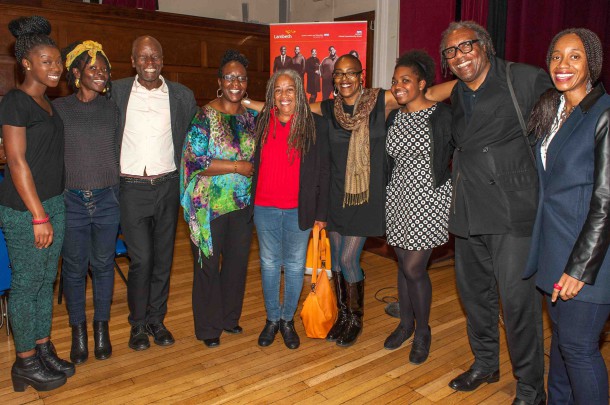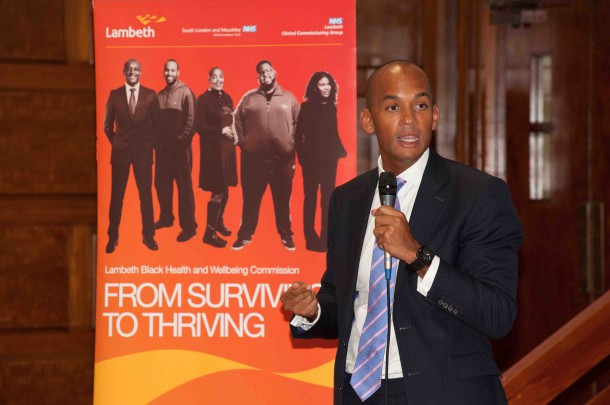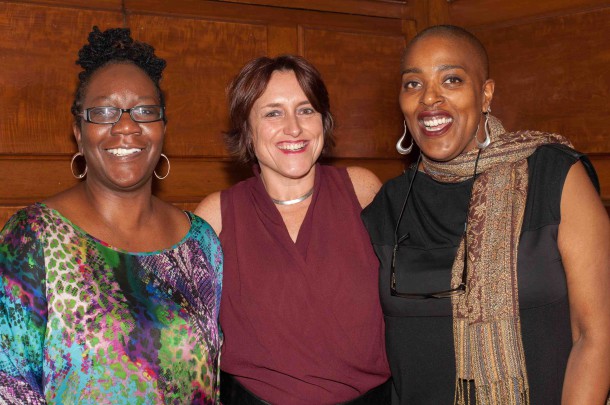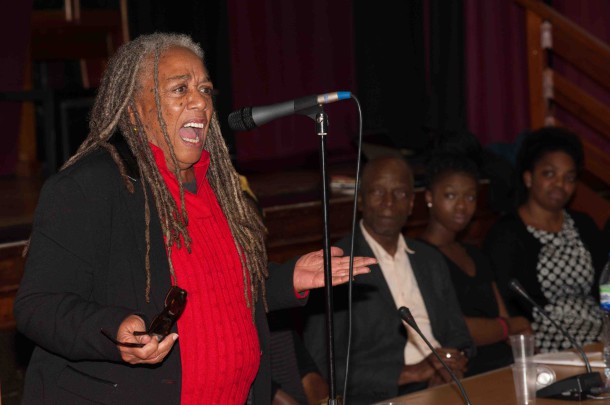
The Assembly Hall at Lambeth Town Hall was full on Friday night for the launch of a social marketing campaign designed to improve mental health services for the black community in the borough.
The event was part of Lambeth’s collaboration with Time to Change, an anti-stigma and mental health campaign run by charities Mind and Rethink Mental Illness on World Mental Health Day.
Opened by Mayor Ade Aminu, the event also fell poignantly within Black History Month.
Lambeth council began the Black Health and Wellbeing Commission a year ago to look more closely at mental health provision in the borough. On Friday those findings were shared with local service groups and members of the public by commission co-chairs, Councillors Jacqueline Dyer and Edward Davie.

Davie cited the death of Sean Rigg as a “catalyst” for the Commission’s work, and opening speeches by Davie and Chuka Umunna drew attention to the increased likelihood of Lambeth residents becoming service-users – black men are 17 times more likely to be diagnosed with a serious mental illness than white counterparts.
The event featured round-table discussions designed to engage those present with the points of the Commission, and develop the user-led engagement encouraged by Lambeth council mental health services.
Participants were unanimous in recommending the inclusion of mental-health education alongside science in schools.
Sandra Griffiths, from Time to Change, said that “starting to share stories takes real guts and bravery, especially when you’re one of the first”.

She spoke of the unprecedented work the organisation has undertaken in Birmingham with young black men and police, that aims to reduce stigma and improve care and understanding between police and communities.
Angela, a local ‘young champion’, carer, and master’s student, said she had found an incredibly supportive network in Time to Change, and added confidence in facing up to stigmatisation.
“If you go to McDonalds at 5 am”, said another speaker, Dr Colin King, “you’ll see what community engagement actually is”. He drew attention to the need for improved mental health services in Lambeth; 17 per cent of people with serious mental health issues in the borough are Black Caribbean.
“When you’re poor, you’re mad – when you’re rich, you have a nervous breakdown”, said Jamaican poet Jean Binta Breeze, who was locked in a Brixton police cell after a nervous breakdown.

Emmanuel Umunna and Patrick Nyikavaranda of the Certitude support organisation and representatives of Effra Road’s Mosaic Clubhouse drew attention to improvements in Lambeth mental-health services, including increased professional communication, and in accessibility for local residents.
The event highlighted improvements in addressing inequality in care for the Black Caribbean population, encouraging professionals, service users, and local ‘Champions’ to get involved in their community, and promote the opportunity available thanks to the Commission for Lambeth residents to shape their own mental-health services.
Find out more about the campaign at their website.






